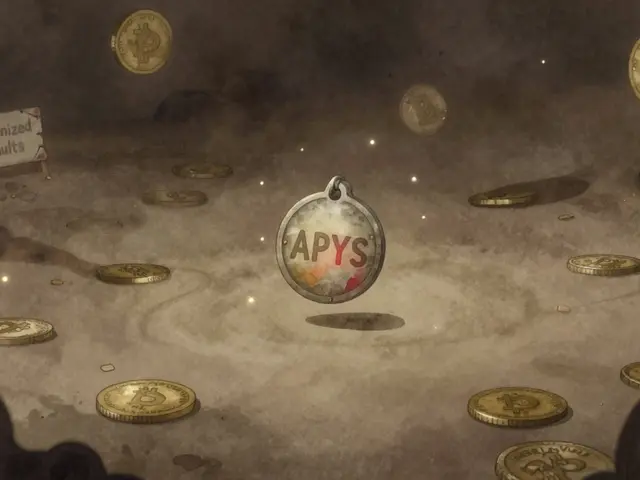Swiss Crypto Wealth Tax Calculator
Calculate Your Wealth Tax
How Swiss Crypto Tax Works
Key Facts: Switzerland has no capital gains tax on cryptocurrency for individual investors. Instead, you pay annual wealth tax on your total crypto holdings.
Wealth Tax Rates:
- CHF 0 - 100,000 0.1%
- CHF 100,001 - 500,000 0.2%
- CHF 500,001 - 1,500,000 0.3%
- CHF 1,500,001 - 2,500,000 0.4%
- CHF 2,500,001+ 0.5%
Your Tax Liability
Switzerland’s Zug isn’t just another city with a few crypto startups. It’s the Crypto Valley-the most advanced, predictable, and business-friendly crypto regulatory zone on the planet. If you’re wondering how a small Swiss canton became the global hub for blockchain companies, the answer isn’t luck. It’s deliberate, clear, and carefully crafted regulation that actually works.
Why Zug? The Birth of Crypto Valley
Zug didn’t wake up one day and decide to go all-in on crypto. It started small. In 2016, the city became the first municipality in the world to let residents pay taxes in Bitcoin and Ether-up to CHF 100,000 per year. That wasn’t a publicity stunt. It was a signal: if you’re building something real in crypto, Zug will treat you like a legitimate business, not a risk to be shut down. That move opened the door. Companies like Crypto AG, Bitcoin Suisse, and later, major DeFi protocols, started setting up offices here. Why? Because Zug offered something no other place could: legal certainty. No guessing games. No sudden crackdowns. Just rules you can read, understand, and build around.The DLT Act: The Legal Backbone
The real game-changer came on August 1, 2021, when Switzerland’s Distributed Ledger Technology (DLT) Act took effect. This wasn’t a vague policy statement. It was a full rewrite of key parts of Swiss civil and financial law to recognize digital assets as legitimate property. Before the DLT Act, if you held a token representing shares in a company, Swiss law didn’t clearly say whether you owned anything. Now, you do. Tokens can be registered, transferred, and traded under clear legal rules. The act also created a new category: DLT trading venues. These are regulated platforms for trading tokenized assets-like stocks or bonds-on blockchain. On March 25, 2025, BX Digital became the first company in the world to receive a DLT trading venue license from FINMA, Switzerland’s financial regulator. That’s not just a milestone. It’s proof that the system works. Companies can now launch tokenized securities, trade them legally, and settle them in Swiss francs-all under one roof.How Crypto Is Taxed in Zug
Taxation is where Zug really stands out. For individual investors, there’s no capital gains tax on crypto. If you buy Bitcoin in 2023 and sell it for a profit in 2025? You pay zero tax on that gain. Same with Ethereum, Solana, or any other digital asset. That’s not a loophole-it’s the law. But it’s not a free-for-all. Here’s what you do owe:- Annual wealth tax: All crypto holdings are included in your personal net worth and taxed at the cantonal level. In Zug, rates range from 0.1% to 0.5% depending on your total assets.
- Income tax on mining and staking: If you earn crypto through mining, staking, or running a node, that’s treated as income and taxed at your personal income rate.
- No tax on payments: If you use Bitcoin to buy coffee in Zug, you don’t trigger a taxable event. No capital gains, no reporting. Just spend it.

Stablecoins: No Special Rules, Just Real Oversight
A lot of countries are trying to ban or heavily restrict stablecoins. Switzerland does something smarter: it looks at what they actually do. FINMA doesn’t have a separate stablecoin law. Instead, it applies existing rules based on function. If a stablecoin acts like a deposit, it’s regulated under the Banking Act. If it’s structured like a fund, it falls under the Collective Investment Schemes Act. No loopholes. No gray zones. That’s why Tether’s USDT can be used for tax payments in Lugano-it’s treated as a payment instrument, not a security. And why companies like Paxos and Circle operate in Switzerland: they know regulators won’t shut them down for being stablecoins. They’ll only act if they break existing financial rules.Banking and Crypto: The Real Test
Crypto-friendly regulation means nothing if banks won’t work with you. That’s where Switzerland wins again. In 2024, PostFinance-Switzerland’s largest retail bank, owned by the federal government-started offering customers the ability to hold 11 different cryptocurrencies in their accounts. That’s not a side feature. It’s a full banking product. You can buy, hold, and transfer crypto through your PostFinance app, just like you would with euros. Even bigger: BX Swiss teamed up with Credit Suisse, Pictet, and Vontobel to test blockchain-based trading of tokenized bonds. They issued the securities on Ethereum, traded them on BX Swiss’s platform, and settled the payments directly in Swiss francs through the country’s real-time interbank system. That’s not theory. That’s live, tested, and approved infrastructure.AML and Compliance: No Free Passes
Don’t get the wrong idea. Switzerland isn’t a crypto wild west. Every crypto business operating here must comply with strict Anti-Money Laundering (AML) rules. That means:- Know-your-customer (KYC) checks on all users
- Reporting suspicious activity to FINMA
- Keeping records for at least 10 years

What’s Changing in 2025-2026?
The biggest update isn’t in Zug itself-it’s at the federal level. On June 6, 2025, the Swiss Federal Council approved the Automatic Exchange of Crypto Asset Information (AEOI) with 74 countries. Starting January 2026, Swiss financial institutions will begin reporting crypto holdings of foreign residents to their home tax authorities. First data exchanges begin in 2027. This isn’t a crackdown. It’s Switzerland playing by global rules. The country still allows crypto. It still doesn’t tax capital gains. But now, if you’re a U.S. citizen living in Zug and holding $500,000 in Bitcoin, the IRS will know. That’s transparency, not restriction.Who’s Winning in Crypto Valley?
The numbers don’t lie. In 2023, the top 50 blockchain and crypto companies in Switzerland and Liechtenstein were worth $584.33 billion-up 56% from 2022. Zug still leads, but Zurich and Liechtenstein are catching up fast. Why? Because the rules are clear, the taxes are fair, and the banks are open. Companies don’t move here because of tax breaks alone. They move here because they can build without fear. No regulatory whiplash. No sudden bans. No confusing paperwork. Just a legal system that understands digital assets and treats them like any other asset class.What This Means for You
If you’re a crypto founder, investor, or even just someone holding digital assets:- You can legally pay taxes in Bitcoin in Zug-no middleman needed.
- You can trade tokenized stocks on a licensed Swiss platform without crossing borders.
- You won’t pay capital gains tax on your crypto profits.
- You can hold crypto in your Swiss bank account-yes, even at PostFinance.
- You’ll be regulated, but not blocked. Compliance is expected, not punished.
Can I pay my taxes in Bitcoin in Zug?
Yes. Since 2016, the city of Zug has allowed residents to pay municipal taxes in Bitcoin and Ether, up to CHF 100,000 per year. Other Swiss municipalities, like Lugano, have followed suit. Payments are processed through approved crypto payment gateways, and the value is converted to Swiss francs at the time of payment for official accounting.
Do I pay capital gains tax on crypto in Switzerland?
No. Individual investors in Switzerland do not pay capital gains tax on cryptocurrency sales, regardless of profit size. This applies to Bitcoin, Ethereum, and all other digital assets. However, if you’re trading crypto as a business or earning income from mining or staking, those earnings are subject to income tax.
Is crypto legal tender in Zug?
No, crypto is not legal tender in Zug or anywhere else in Switzerland. Legal tender means the government requires businesses to accept it as payment. Switzerland still uses the Swiss franc as legal tender. However, businesses and municipalities can voluntarily accept crypto for payments, which is what Zug, Lugano, and the Swiss Federal Railways do.
What is the DLT Act and why does it matter?
The DLT Act, effective since August 1, 2021, is Swiss legislation that gives legal recognition to digital assets like tokens on blockchain. It allows tokenized shares, bonds, and other assets to be registered, transferred, and traded under clear legal rules. It also created a new licensing category for DLT trading venues, making Switzerland the first country to legally support blockchain-based securities markets.
Can I open a bank account for my crypto business in Switzerland?
Yes, but only if your business complies with Swiss AML and FINMA regulations. Banks like PostFinance, Vontobel, and Pictet now offer services to licensed crypto firms. You’ll need a solid business plan, KYC documentation, and proof of compliance with anti-money laundering rules. Unlicensed or anonymous operations will not be accepted.
Will Switzerland ban stablecoins?
No. Switzerland does not ban stablecoins. Instead, it regulates them under existing financial laws based on their function. If a stablecoin acts like a deposit, it falls under banking regulations. If it’s structured like an investment fund, it’s regulated under the Collective Investment Schemes Act. This approach ensures oversight without stifling innovation.
What’s the difference between Zug and other crypto hubs like Dubai or Singapore?
Zug’s advantage is legal stability and integration with traditional finance. Unlike Dubai or Singapore, which often rely on regulatory sandboxes or temporary licenses, Zug operates under permanent, transparent laws like the DLT Act. Swiss banks accept crypto businesses. Tax rules are clear. There’s no political risk of sudden reversals. It’s not the fastest-growing hub-but it’s the most reliable one.







Johanna Lesmayoux lamare
November 13, 2025 AT 10:11Just paid my property tax in ETH last month. No headaches, no forms, no waiting. Switzerland gets it.
ty ty
November 13, 2025 AT 15:06Oh wow, another crypto bro paradise. Next they’ll let you pay your doctor bills in Dogecoin. How revolutionary.
Rachel Everson
November 14, 2025 AT 06:41As someone who’s moved three times because of crypto regulatory chaos, Zug feels like the first real home I’ve found. No guesswork. No last-minute bans. Just clear rules. I wish more places had this kind of foresight.
tom west
November 15, 2025 AT 00:19Let’s be real - this isn’t innovation, it’s regulatory arbitrage. Switzerland is just exploiting the fact that other countries are too incompetent to regulate properly. They’re not leaders, they’re the last safe harbor for crypto fugitives. And now they’re selling this as a virtue? Pathetic.
Ashley Mona
November 16, 2025 AT 13:47PostFinance letting you hold crypto? That’s wild. I used to have to use offshore exchanges just to get exposure. Now my Swiss bank account has a ‘Buy BTC’ button. Feels like the future already landed.
Edward Phuakwatana
November 18, 2025 AT 13:38This isn’t just about regulation - it’s about ontology. Switzerland didn’t just legalize tokens, they redefined ownership in the digital age. The DLT Act isn’t a law, it’s a metaphysical upgrade to capitalism. We’re witnessing the birth of a new asset class, not just a new tax code.
Kylie Stavinoha
November 19, 2025 AT 17:38What’s fascinating is how Switzerland avoids the trap of creating crypto-specific laws. They don’t treat tokens as exotic - they treat them as assets. That’s the real genius. It’s not about blockchain, it’s about recognizing that value can exist in code. And that’s a philosophical shift most governments still refuse to make.
Debraj Dutta
November 21, 2025 AT 08:59India is still debating whether crypto should be banned. Meanwhile, Zug is settling tokenized bonds on Ethereum with Swiss francs. The gap isn’t just technological - it’s visionary.
Raymond Day
November 23, 2025 AT 04:02They’re not ‘crypto-friendly’ - they’re bank-friendly. Every single innovation here benefits the Swiss financial elite. PostFinance, Credit Suisse, Pictet - they’re the real winners. The rest of us just get to watch while they tokenize everything.
Joy Whitenburg
November 23, 2025 AT 21:35ok but like… i just wanna pay my rent in btc and not have my landlord side-eye me. zug is the only place that makes that feel normal. 🤝
Phil Bradley
November 25, 2025 AT 19:46Think about it - if you could trade a stock as a token, settle it instantly, and not pay capital gains? That’s not regulation. That’s liberation. The whole system was built on friction. Zug just deleted it.
Arthur Coddington
November 26, 2025 AT 23:34They’re not building the future. They’re just letting the past keep running on new hardware. Tokenized bonds? That’s just Wall Street with a blockchain tattoo. No revolution here - just rebranding.
Suhail Kashmiri
November 27, 2025 AT 12:23Switzerland is just a tax haven with better Wi-Fi. You think people move here for the rules? No. They move here because they can hide money and call it innovation.
Michelle Elizabeth
November 27, 2025 AT 22:38It’s funny how everyone calls Zug ‘Crypto Valley’ like it’s Silicon Valley. But there’s no startups here - just old banks with crypto desks. The real innovation died when the VCs stopped showing up.
Stephanie Platis
November 29, 2025 AT 13:45Let’s clarify: The DLT Act does not, under any circumstance, grant legal tender status to cryptocurrencies. The article correctly states that Bitcoin is not legal tender - yet many commenters continue to conflate acceptance with legality. This is a fundamental misunderstanding.
dhirendra pratap singh
November 30, 2025 AT 07:34OMG I just cried reading this. 😭 I moved from Dubai to Zug last year and my startup actually got a bank account. In Dubai, they asked me to prove I wasn’t a scammer. In Zug, they asked me to prove I was serious. That’s the difference between a circus and a country.
Diana Dodu
December 1, 2025 AT 07:14So let me get this straight - the U.S. taxes crypto gains, but Switzerland doesn’t? And you call this fair? This is just tax evasion dressed up as policy. Americans are paying more because they’re patriotic. Switzerland is just exploiting them.
Noriko Yashiro
December 1, 2025 AT 17:58As someone who used to work in fintech in London, I’ve seen regulation kill innovation every time. Zug proves you can have both - rules and freedom. Not magic. Just competence.
Kristin LeGard
December 2, 2025 AT 01:58Why should Americans care about Zug? Because if you’re holding crypto, you’re already paying taxes - just not in the U.S. This is a loophole for the rich. And we’re supposed to be okay with that?
BRYAN CHAGUA
December 3, 2025 AT 03:02People keep calling this a tax haven. But what if the real innovation isn’t avoiding taxes - it’s building a system where you don’t need to hide? Where you can be transparent, compliant, and still thrive? That’s not evasion. That’s evolution.